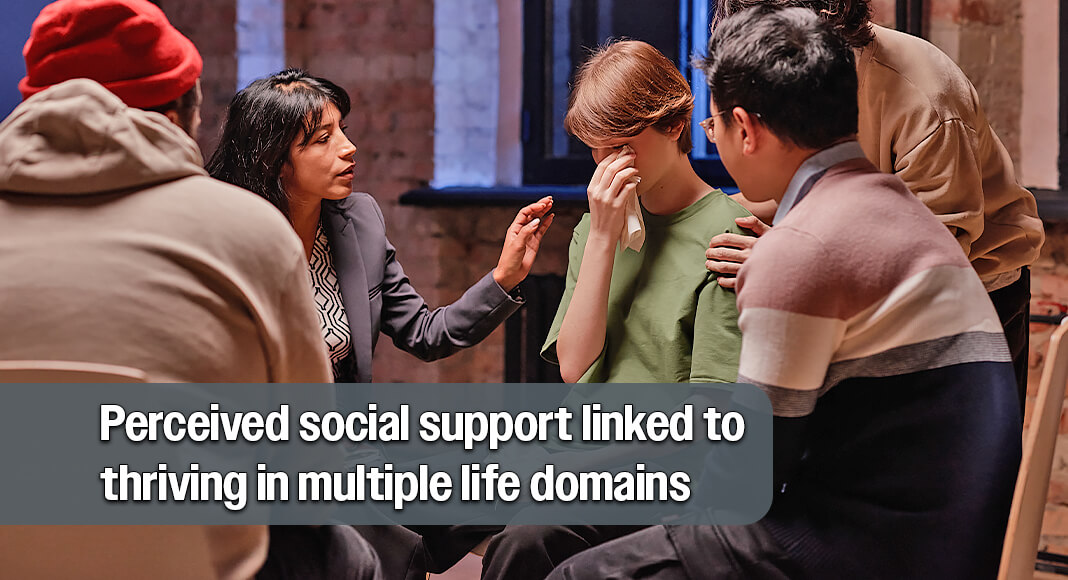
Mega Doctor News
AMERICAN PSYCHOLOGICAL ASSOCIATION – WASHINGTON — People who feel supported by family, friends and colleagues tend to have better mental health, perform more effectively at work and experience positive outcomes in other areas such as physical health, education and risk-taking behaviors, according to research published by the American Psychological Association.
“This study underscores the importance of considering the associations between multiple types and sources of perceived social support and multiple domains of human thriving,” said lead author GeckHong Yeo, PhD, of the National University of Singapore. “Our findings also suggest that adolescents, in particular, can benefit from perceived social support—especially from parents—for improving physical health and reducing risk-taking behavior.”
The research was published in the journal Psychological Bulletin.
When it comes to social support, researchers often talk about two types: received support and perceived support. Received support is about the actual help people get, while perceived support is the belief that help would be there if needed. The researchers in this study chose to focus on perceived social support because prior evidence suggests it plays a more critical role in human thriving.
Researchers conducted a systematic review and meta-analysis of data from 604 studies, comprising more than 894,000 participants, to explore how perceived social support influenced well-being in five areas: mental health, physical health, risk-taking behaviors, educational functioning and work performance. The studies were conducted in more than 30 countries, including the United States, the United Kingdom, the Netherlands, Germany, Canada, Korea, Hong Kong, Israel, Indonesia, Taiwan and Nigeria. Most of the study participants (60%) were from the United States or countries in Europe.
“On average, perceived social support had the largest associations with better mental health and better work performance,” said Yeo. “Perceived social support also demonstrated significant associations with better physical health, lower risk-taking behaviors, and better educational functioning.”
While there was no significant difference in the effect by gender, the impact of perceived social support did vary by age and culture. For example, having strong perceived support seemed to matter more for avoiding risky behavior and staying physically healthy during childhood and adolescence than it did in adulthood. And support was linked more strongly with doing well in school in non-Western cultures, while in Western cultures it was linked more strongly to work performance.
The findings suggest that fostering strong social connections can enhance well-being and success across various life domains, according to Yeo.
“By identifying the types and sources of support that matter most, we can design targeted interventions to improve mental health, physical health and overall quality of life,” she said. “Our findings can help policymakers, health professionals and social service providers build stronger support networks that promote thriving across different areas of life and contribute to overall well-being.”
Article: “How Does Perceived Social Support Relate to Human Thriving? A Systematic Review with Meta-Analyses,” by GeckHong Yeo, PhD, National University of Singapore, Jennifer Lansford, PhD, Duke University and Karen Rudolph, PhD, University of Illinois Urbana-Champaign. Psychological Bulletin, published online Oct. 16, 2025.
Information Source: AMERICAN PSYCHOLOGICAL ASSOCIATION









